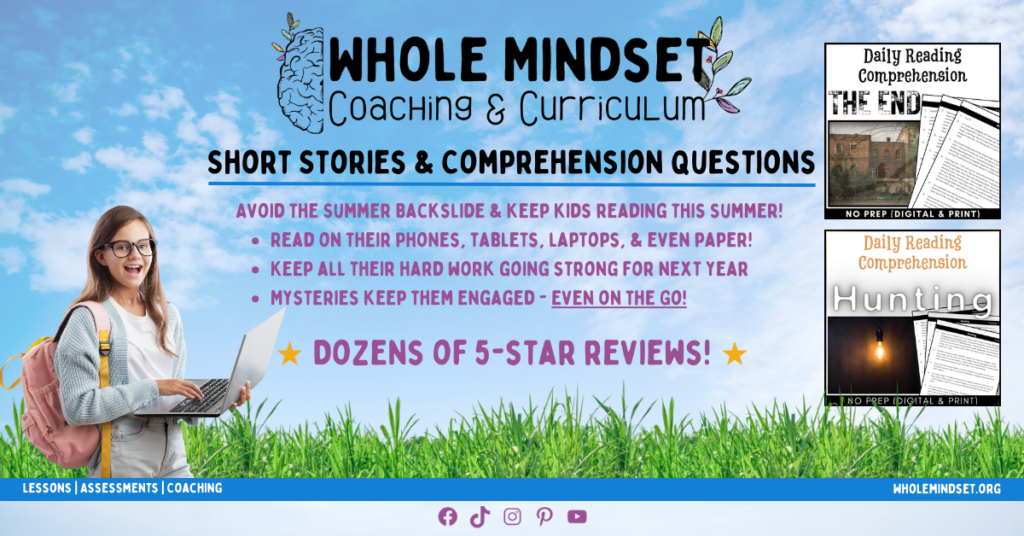Your cart is currently empty!
Healthy Habits, Emotional Independence, and a Happy Life
Throughout life, we learn a lot of things intentionally; how to ride a bike, how read, brush teeth… We learn how to take care of our bodies by exercising and eating healthy. Do we ever learn healthy ways to spend time alone? Montana State University researchers found that isolation can lead to increases in premature death. Increased blood pressure, higher cholesterol, likelihood of depression, and decreases in cognitive abilities are several contributing factors – all possible side effects of loneliness and emotional dependence (MSU article).
When I taught in a rural school in Wyoming, several of my students had parents that worked night shifts or had multiple jobs. This meant the students were frequently alone. I often worried about their health; mentally and physically. I fear this is the reality for many children in our country. Yet, there is no substantial effort being placed on educating children about healthy emotional independence.
Emotional Dependence & Independence
Alyssa Mancao, LCSW, found that when our happiness depends on something outside of us it is known as emotional dependence. Emotional dependence “is when our feelings and self-worth are based on external factors such as how another person feels about us.” We see this often when children become obsessed with social media, for example, and thereby identify as whatever others label them; fat, stupid… You name it. Grades in school, social alienation, and other external factors tend to confirm to the individual that these outside opinions are correct.
However, on the other side of this spectrum, there is emotional independence. According to Mancao, “People who possess emotional independence are able to cultivate a sense of happiness and peace despite what may be happening in their lives and relationships. This is not to say that they are never affected by things that happen outside of them, but they still have a sense of who they are and can fulfill their own needs internally,” she explains.
So, how do we teach our children how to embrace emotional independence? How do we help them navigate alone time in ways that are healthy? Turning to drugs, self harm, social media, and other harmful outlets are far too rampant among today’s teens. 61% of 8th graders increased their drug use between 2016 and 2020 while 62% increased their alcohol intake (NCDAS Report).
I have often noticed drastic changes in statistics when looking at middle school aged children. Elementary aged children fall into a category in which there are devoted interventions and supports in place to ensure they are on track; reading programs, parental involvement, structured social time… Yet, once kids reach middle school, it really seems like a lot of that support diminishes. Parents go back to work, play dates are no longer set up for the child yet they are too young to drive themselves to friends… A lot changes for the tween age group. Suddenly, they are thrust into having alone time. Depending on how well their emotional foundation has been established, this could be fine or it could lead to problems.
What to do about it?
In a recent lesson, I wrote about a girl whose parents travel for work. Elana, the main character, is alone a lot. The lesson sees her embrace her time by exploring the neighborhood on her bike. Not all kids live in places safe enough to do that. Here are some options to talk with your children or students about when looking at healthy ways to embrace time alone –
- Stay occupied
- Read, draw, write
- Take a long shower or bath
- Call a friend on the phone (not just text)
- Be active
- Play with the family pet, exercise, hang out in the yard
- Use online resources like YouTube to do yoga, Pilates, or step aerobics
- Do things you actually enjoy
- Bake cookies, watch a movie, sing or dance
- Engage in a project
- Get creative with found objects, re-vamp your room, organize
What’s important to remember is that there isn’t just one thing to do, and each day can be different or you can create a routine. What matters is that our youth today learns to embrace healthy habits, emotional independence and they live long and happy lives. It is our responsibility to teach and model this for them.
For more lessons that include social-emotional learning (SEL), check out my shop. For help if you or someone you know is struggling, Whole Mindset offers coaching. Soon, there will be SEL courses for students and for adults as well. You are not alone in any of this, ever. Know that you are strong. You are smart. And you have got this!



